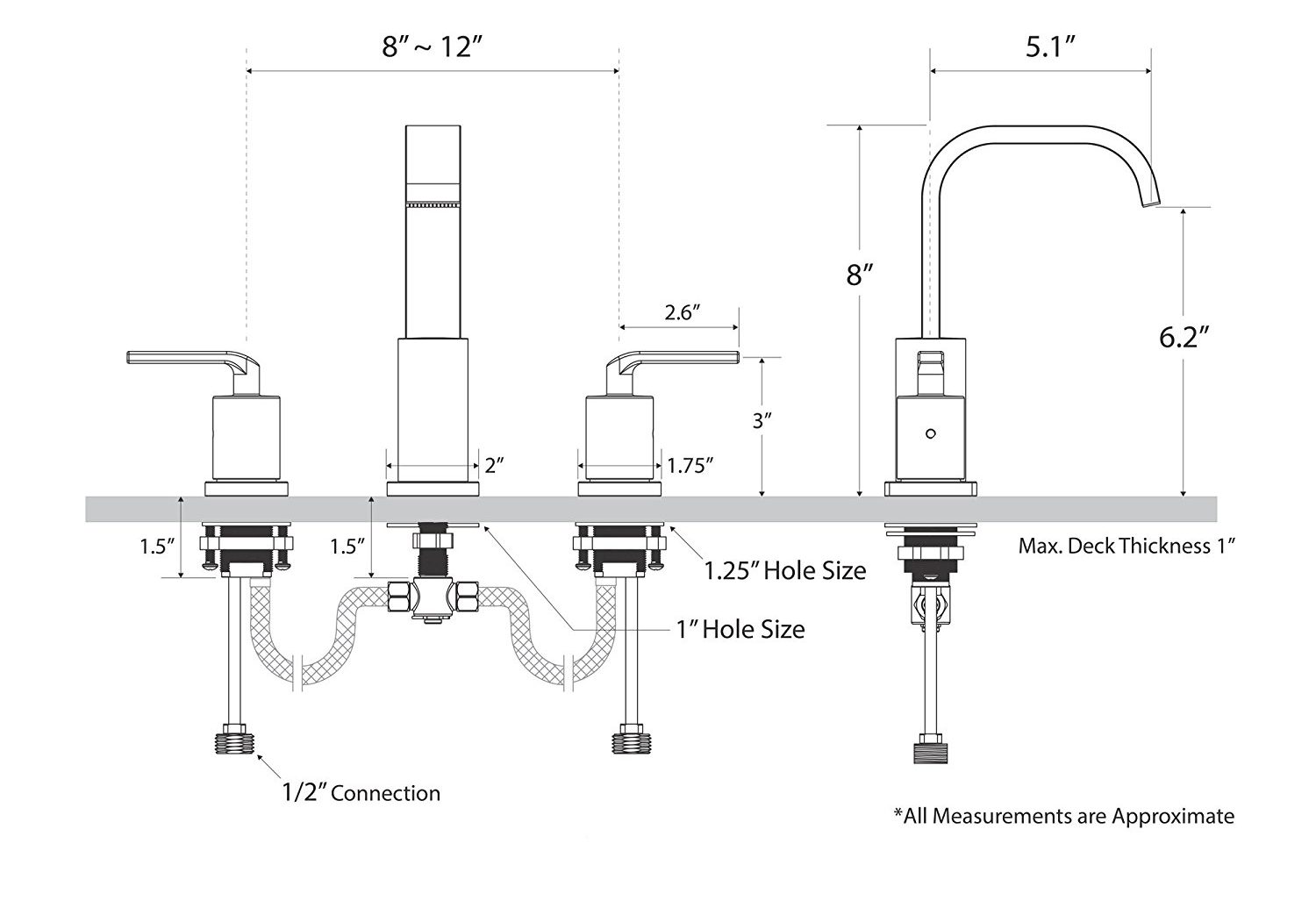single handles are all well and good, but I’d prefer a hot knob, a cold knob, and a flow knob. I’ve never been clear why this isn’t done, I suppose its probably cost. Maybe there is some wear and tare reason?
Because sometimes you want full cold, sometimes you want full hot. Yes you could use a three way valve but you’d generally lose maximum water pressure.
I don’t understand how what you’re suggesting could work any differently than a standard mixer tap, where if you want full cold you turn it the way to cold, and pull all the way to fully open. You say “you’d generally lose maximum water pressure” - how does the mechanism you’re thinking of actually set the ratio of hot to cold, and how does it not lose pressure?
At both taps full open you have full flow/pressure from both the hot water and cold water supply only restricted by the valve full open orifice.
Now add an additional valve to the mixed outlet of the faucet with both hot and cold feeding into the line that runs into it. If the valve is sized to accommodate the full flow from both valves feeding into it, the full combined pressure/flow from both cold mains and hot supply is available.
Also, once you set the temperature you like by turning the temp taps, that temp will be available to you at any flow rate on demand. Nothing you do to the mixed valve will change the temperature of the flow. This is especially useful if your hot temperature is very hot, you can have nice warm water to wash your hands every time without worrying you might scald yourself.
they set the relative flow/pressure of respectively hot and cold water. The tap sets the total flow from minimum to maximum available based on the pressure supplied from.thenother two, allowing the selected hot/cold ratio to be preserved between on/off cycle, while also allowing for just a small stream of water when you need it, or a full flow of water when you need to fill a vessel or blast a dish.
single handles are all well and good, but I’d prefer a hot knob, a cold knob, and a flow knob. I’ve never been clear why this isn’t done, I suppose its probably cost. Maybe there is some wear and tare reason?
Seperate hot and cold knobs in showers are against code in a lot of places
Isn’t this thread about sinks?
Ah shit, you’re right. My brain just saw ‘faucet’
Why would you need separate hot and cold knobs if all that matters is the ratio between them?
Because sometimes you want full cold, sometimes you want full hot. Yes you could use a three way valve but you’d generally lose maximum water pressure.
I don’t understand how what you’re suggesting could work any differently than a standard mixer tap, where if you want full cold you turn it the way to cold, and pull all the way to fully open. You say “you’d generally lose maximum water pressure” - how does the mechanism you’re thinking of actually set the ratio of hot to cold, and how does it not lose pressure?
zheres your standard two tap mixer faucet:
At both taps full open you have full flow/pressure from both the hot water and cold water supply only restricted by the valve full open orifice.
Now add an additional valve to the mixed outlet of the faucet with both hot and cold feeding into the line that runs into it. If the valve is sized to accommodate the full flow from both valves feeding into it, the full combined pressure/flow from both cold mains and hot supply is available.
Also, once you set the temperature you like by turning the temp taps, that temp will be available to you at any flow rate on demand. Nothing you do to the mixed valve will change the temperature of the flow. This is especially useful if your hot temperature is very hot, you can have nice warm water to wash your hands every time without worrying you might scald yourself.
I’m so confused. What do the cold and hot knows even do?
they set the relative flow/pressure of respectively hot and cold water. The tap sets the total flow from minimum to maximum available based on the pressure supplied from.thenother two, allowing the selected hot/cold ratio to be preserved between on/off cycle, while also allowing for just a small stream of water when you need it, or a full flow of water when you need to fill a vessel or blast a dish.